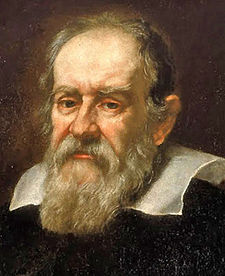 The Catholic Church’s ambivalence about Galileo is legendary. After convicting him of heresy in 1633 and forcing him to recant his position on heliocentrism, the church continued to ban his books until 1718, and it wasn’t until 1835 that the church completely stopped denouncing heliocentric theory. In 1939, Pope Pius XII praised Galileo, but in 1990, Cardinal Ratzinger (now Benedict XVI) endorsed the opinion of philosopher P. Feyerabend that “the process against Galileo was reasonable and just.”
The Catholic Church’s ambivalence about Galileo is legendary. After convicting him of heresy in 1633 and forcing him to recant his position on heliocentrism, the church continued to ban his books until 1718, and it wasn’t until 1835 that the church completely stopped denouncing heliocentric theory. In 1939, Pope Pius XII praised Galileo, but in 1990, Cardinal Ratzinger (now Benedict XVI) endorsed the opinion of philosopher P. Feyerabend that “the process against Galileo was reasonable and just.”
In 1981, Pope John Paul II asked the Pontifical Council for Culture to re-examine the case. Their conclusion, published in 1992, was that the judges who condemned Galileo had erred in interpreting the scriptures too literally, but that Galileo himself had erred in not presenting the Copernican system as a hypothesis, as his own experimental method required him to do. (See section 5 of their findings.) For this methodological failing, Galileo was under house arrest until his death in 1642. (The Church was very serious about scientific rigor in those days.)
The Pontifical Council for Culture is now back in the news on the Galileo affair. Here is a clip from the New York Times of July 22, 2010:
For centuries, the Vatican has operated a serious astronomical observatory in Castel Gandolfo, outside Rome, which is linked to the observatory at the University of Arizona and run by a Jesuit astronomer with no doubts about heliocentrism. But as recently as last fall, at a news conference introducing an exhibition of historic telescopic instruments at the Vatican Museums, the director of the Vatican’s Pontifical Council for Culture, Monsignor Gianfranco Ravasi, referred without blinking to “the errors committed by both sides” — indicating both the church and Galileo.
Asked by a reporter how he might explain the errors committed by Galileo, the genial monsignor, a former director of Milan’s Biblioteca Ambrosiana who is widely seen as a rising star in the Vatican firmament, beamed, and with great gusto said only that he hoped one day to organize a conference on the didactic challenges presented by Galileo’s science. Case closed.
